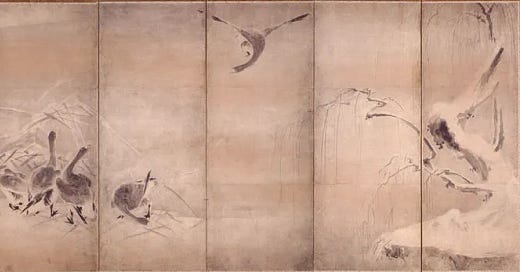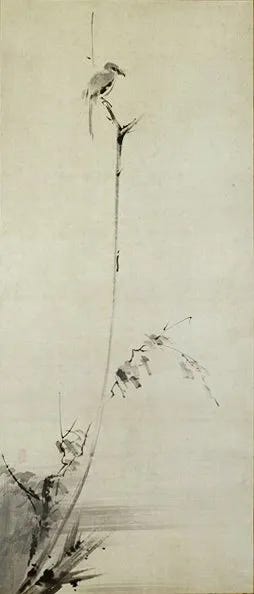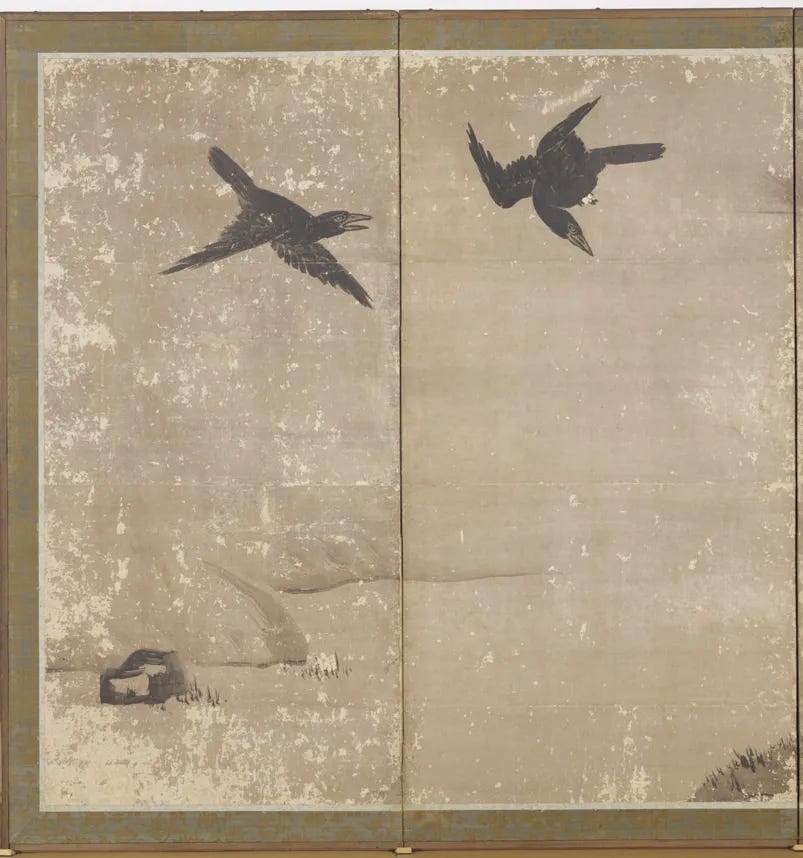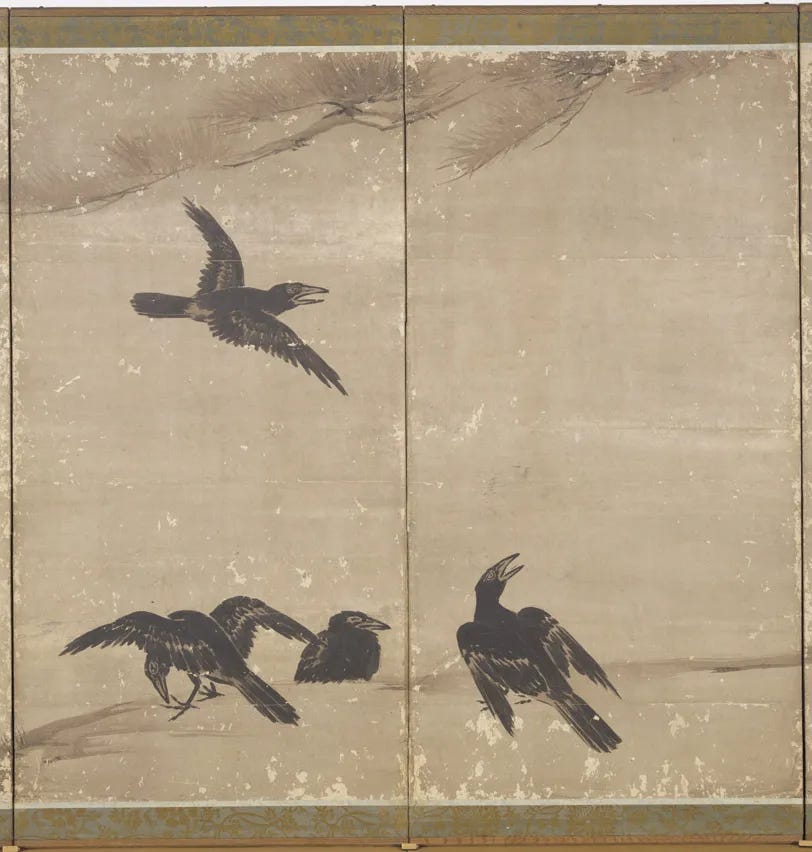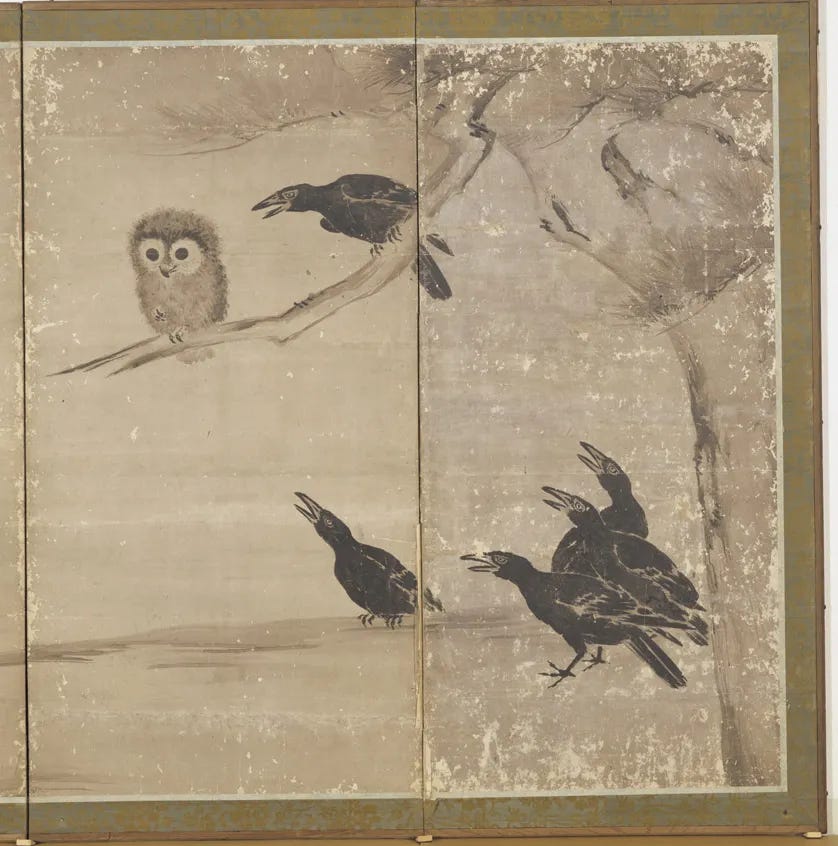Miyamoto Musashi (1584 – 1645) also known as Shinmen Takezō, Miyamoto Bennosuke or, by his Buddhist name, Niten Dōraku, was a legendary Japanese swordsman, philosopher, and strategist, known for his mastery of the double-bladed sword and undefeated record in 61 duels. He is considered a Kensei, or sword-saint, of Japan. Musashi founded the Niten Ichi-ryū style of swordsmanship and authored influential works such as "The Book of Five Rings" and "The Path of Aloneness."
I was gifted The Book of Five Rings and love it. The fact that it has remained over the centuries is a testament to its quality. I admire Musashi to such a degree that I have him tattooed on my very person.
Most of the accolades attributed to him centre around his ability in swordmanship and the fact that he remained undefeated during his life. What achieves less recognition is that he was a deep thinker and exceptional artist. So with that in mind let’s take a look at some of his art, which has also stood the test of time.
“In time, all things work to your advantage when you pursue them with an open heart.”
“Anyone can give up, it’s the easiest thing in the world to do. But to hold it together when everyone else would understand if you fell apart, that’s true strength.”
“There is nothing outside of yourself that can ever enable you to get better, stronger, richer, quicker, or smarter. Everything is within. Everything exists. Seek nothing outside of yourself.”
“There is no one way to salvation, whatever the manner in which a man may proceed. All forms and variations are governed by the eternal intelligence of the Universe that enables a man to approach perfection. It may be in the arts of music and painting or it may be in commerce, law, or medicine. It may be in the study of war or the study of peace. Each is as important as any other. Spiritual enlightenment through religious meditation such as Zen or in any other way is as viable and functional as any "Way."... A person should study as they see fit.”
“Never fail to have this attitude of mind, go forward without hurry, learn the essence of things through frequent experiences, taking advantage of every occasion.”
“You must understand that there is more than one path to the top of the mountain.”
This art reflects Musashi's deep connection to nature and his reverence for its beauty and symbolism. The art sought to convey a sense of harmony and unity with the natural world, whilst reflecting his philosophy and worldview, which emphasised the importance of harmony, balance, and inner peace.


